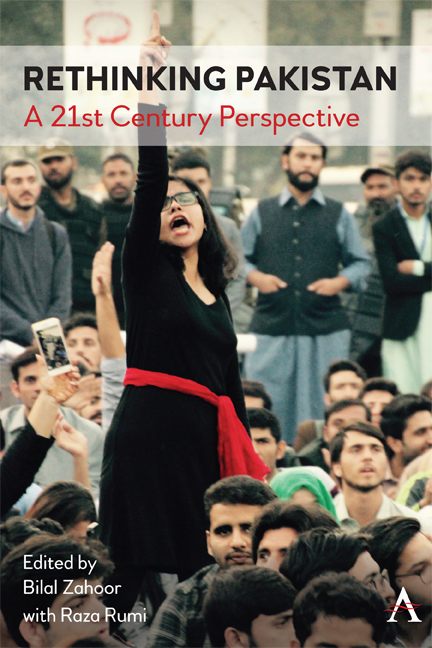Book contents
- Frontmatter
- Dedicated
- Contents
- Acknowledgements
- Introduction
- Part I Identity, Religion and Radicalisation
- Part II Development, Reform and Governance
- Part III Rights, Repression and Resistance
- Part IV Sex, Gender and Emancipation
- Part V Conflict, Diplomacy and Foreign Policy
- Contributors
- Bibliography
- Index
Chapter 10 - Pakistan’s Fundamental Water Governance Challenges – And How to Overcome Them
Published online by Cambridge University Press: 20 January 2022
- Frontmatter
- Dedicated
- Contents
- Acknowledgements
- Introduction
- Part I Identity, Religion and Radicalisation
- Part II Development, Reform and Governance
- Part III Rights, Repression and Resistance
- Part IV Sex, Gender and Emancipation
- Part V Conflict, Diplomacy and Foreign Policy
- Contributors
- Bibliography
- Index
Summary
Pakistan's water economy faces a host of complex challenges which, for the most part, flow from the colonial-era legislation that allocates water to farmers, the primary users of the freshwaters of the integrated Indus River System. Compounding this outmoded system of water allocation is the increasing and unsustainable use of the basin's groundwater. Geographic location is also a significant challenge being faced by Pakistan since its formation, and the challenges to its transboundary water resources will only continue to grow in the context of climate change. The importance of geography is also paramount within the federation and manifests itself in the realm of interprovincial water sharing characterised by deep mistrust. The country needs to move towards understanding the rational basis of these various manifestations of water rivalry and creatively put in place transparent laws, institutions and norms that will move it beyond its toxic water relations and towards a new era of equitable water management, one that will enhance the social and environmental well-being of all involved.
Background
To say that Pakistan has severe problems related to the management of its water resources would be an understatement. For anyone interested in increasing their knowledge of the Indus basin, I would recommend two major studies undertaken with significant international involvement led by a global leader in water management, the late John Briscoe. From his perches at the World Bank and later at Harvard University, Briscoe led teams of national and international experts to produce comprehensive overviews of Pakistan's management of water resources across such sectors as agriculture and clean drinking water for cities. Other international assessments have followed. Essentially, the country has been, and continues to be, caught in the perfect storm of challenging conditions. These include inefficient colonial-era water allocation rules for irrigation under an 1873 piece of legislation that remains the extant law of the land. Furthermore, the country is currently facing growing pressures for hydropower development from upstream India that controls the Kashmiri territory. These are compounded by decades of mismanagement and underinvestment in both technical capacity as well as knowledge production, all against the backdrop of climate change.
- Type
- Chapter
- Information
- Rethinking PakistanA 21st Century Perspective, pp. 107 - 114Publisher: Anthem PressPrint publication year: 2020



